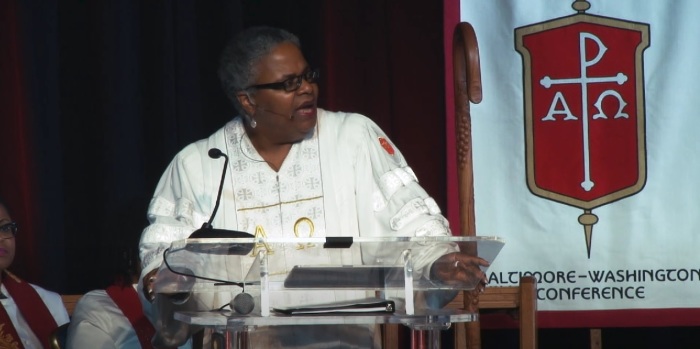38 churches suing Maryland-based UMC Conference over disaffiliation process

A group of 38 congregations that have decided to leave The United Methodist Church over theological issues have sued the denomination over objections to the process of disaffiliation.
Filed last week in the Circuit Court of Maryland for Anne Arundel County, the lawsuit accuses the UMC Baltimore-Washington Conference of “holding their church buildings and property hostage.”
“Defendants claim Plaintiff Churches’ property is encumbered by an irrevocable trust for the benefit of the UMC and the only way for Plaintiff Churches to disaffiliate without surrendering the buildings and property that are central to their congregations is by the permission of the UMC and payment of a financial ransom,” argued the complaint.
“This position is inconsistent with the decades-long pattern and practice of the UMC to allow local churches to disaffiliate and retain their church property without paying a ransom.”
The plaintiffs, which include congregations based in Maryland and West Virginia, claim that the Conference’s process of disaffiliation for congregations puts harsh burdens on churches to have to pay the regional body for their church buildings and properties.
David Gibbs of the National Center for Life and Liberty, which is representing the congregations, told The Christian Post that his law firm took the case “because we believe that the local churches have very valid claims that need to be brought forward.”
“We work with local churches across the nation and we believe that their claims are valid,” he continued. “We are working with 1,500 churches across the nation, many of them are able to work with their conferences to achieve an amicable or cordial separation.”
“But, in some instances, it becomes impossible for the churches to leave, or unconscionable when you start looking about the amount of money that’s being asked for.”
Regarding the Baltimore-Washington situation, Gibbs said, “the churches have paid for their own properties, they’ve maintained their own properties, they’ve paid all their own bills, and they’ve charitably supported the Conference.”
“And now, to leave, the Conference wants 50% of the property values written in a check to them, which as these properties have gone up in value, is just an extremely large amount of money that’s just impossible,” he added.
“And so, some of these churches that are in cities and other areas they’re not in a position to do that, and this is property they’ve already paid for once.”
A Baltimore-Washington Conference spokesperson directed CP to a statement made by Bishop LaTrelle Easterling regarding the matter that was released on Monday.
“What these churches that are suing the conference seek is vastly different from our open and transparent process, which occurs in church conferences and at our annual conference session,” stated Easterling.
“It is an attempt to undermine the core of the connectional commitments all churches and conferences in our denomination have to one another. And it is outside the bounds of established church law, doctrine and theology.”
Easterling also warned of “significant unintended consequences” that can occur if the congregations are allowed to reject the disaffiliation process of the regional body.
“For instance, an abrupt separation creates significant issues that could damage benefits and pensions for retired pastors and their spouses who devoted their lives to service,” stated the bishop.
“Further, the mission shares … give support to our camps, as well as campus ministries, to natural disaster response projects, to food and homeless ministries, and to vital missions in our communities and abroad. Without the committed funding from the United Methodists churches in the BWC, these ministries will no longer be able to flourish.”
Since 2022, more than 1,800 churches have voted to leave the UMC, largely in response to the ongoing debate over whether the denomination should no longer consider same-sex romantic relationships sinful.
The UMC Book of Discipline currently labels homosexuality “incompatible with Christian teaching” and prohibits the blessing of same-sex unions and the ordination of noncelibate homosexuals.
However, many progressive leaders have refused to follow or enforce the Book of Discipline rules, such as allowing the consecration of bishops who are in same-sex marriages.
Most of these departing congregations have joined the Global Methodist Church, a theologically conservative alternative to the UMC that was officially launched in May of last year.




























